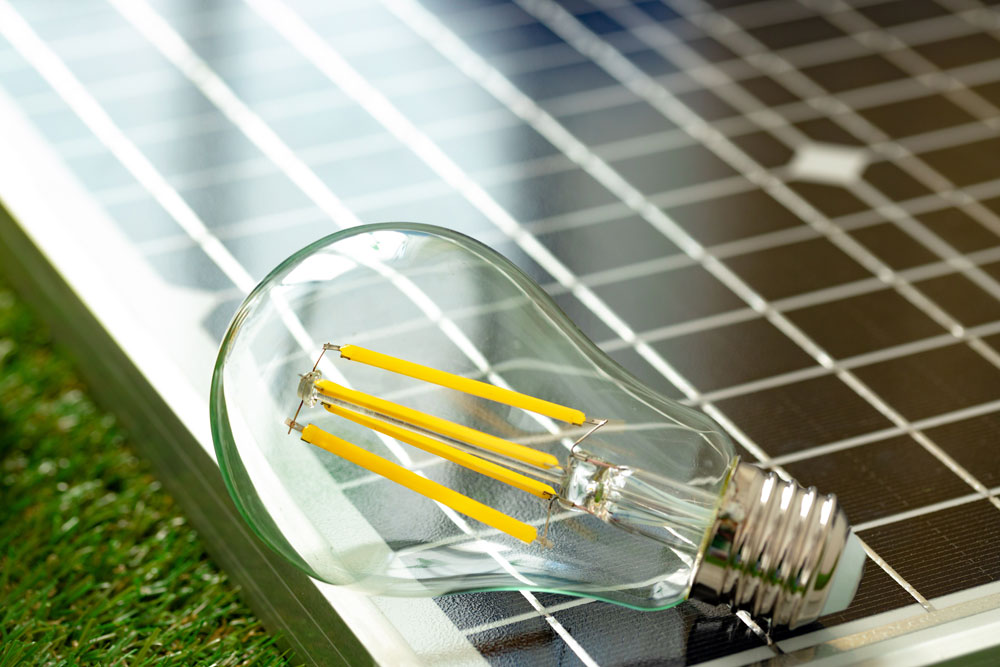Solar panel efficiency is a measurement of a solar panel’s ability to convert sunlight into usable electricity. For example, if the sun shines on a high-efficiency solar panel with a 20% rating, 20% of the sun’s energy will convert to solar energy. Given the same amount of sunlight shining for the same duration of time on two solar panels with different efficiency ratings, the more efficient panel will produce more electricity than the less efficient panel.
Solar Cell Efficiency
A solar panel’s efficiency is based on the efficiency of its solar cells, which depends on the cells’ composition, electrical configuration, surrounding components, and more. Solar cell efficiency refers to the percentage of sunlight shining on each cell that converts to electricity. The combined efficiency of each cell determines a solar panel’s overall efficiency. A wide variety of factors determine cell efficiency including the structure and type of silicon crystal (generally monocrystalline or polycrystalline).
How Efficient Are Solar Panels?
Today, most solar panels are between 17% and 20% efficient, with outliers on either side of the range. High-efficiency solar panels exceed 22% efficiency in some cases, while low-efficiency solar panels can be below 15% efficiency. Typically, higher-efficiency panels are more expensive, but they can help you meet your energy needs, especially if you have limited roof space or shading.
If these efficiency rates seem a bit low to you, don’t be alarmed. The standard for efficiency is only rising as new technologies emerge and manufacturing capabilities improve. Scientists achieved a record 40% efficiency by using multi-junction cells optimized to capture different frequencies of light, although this is not currently attainable in commercially available panels. Current panel offerings provide more than enough usable electricity for most commercial and residential properties.
Reference: https://news.energysage.com/what-are-the-most-efficient-solar-panels-on-the-market/


